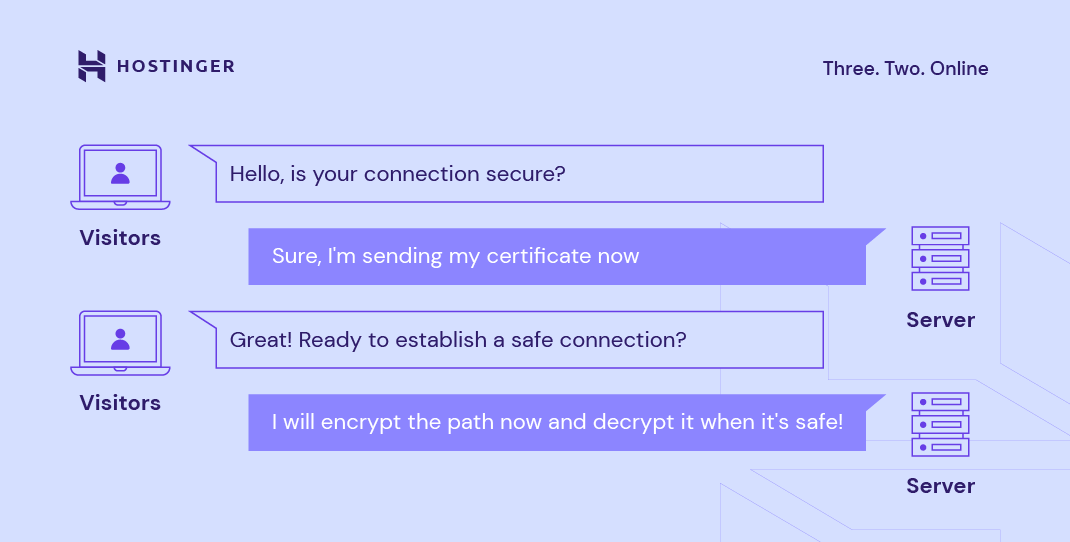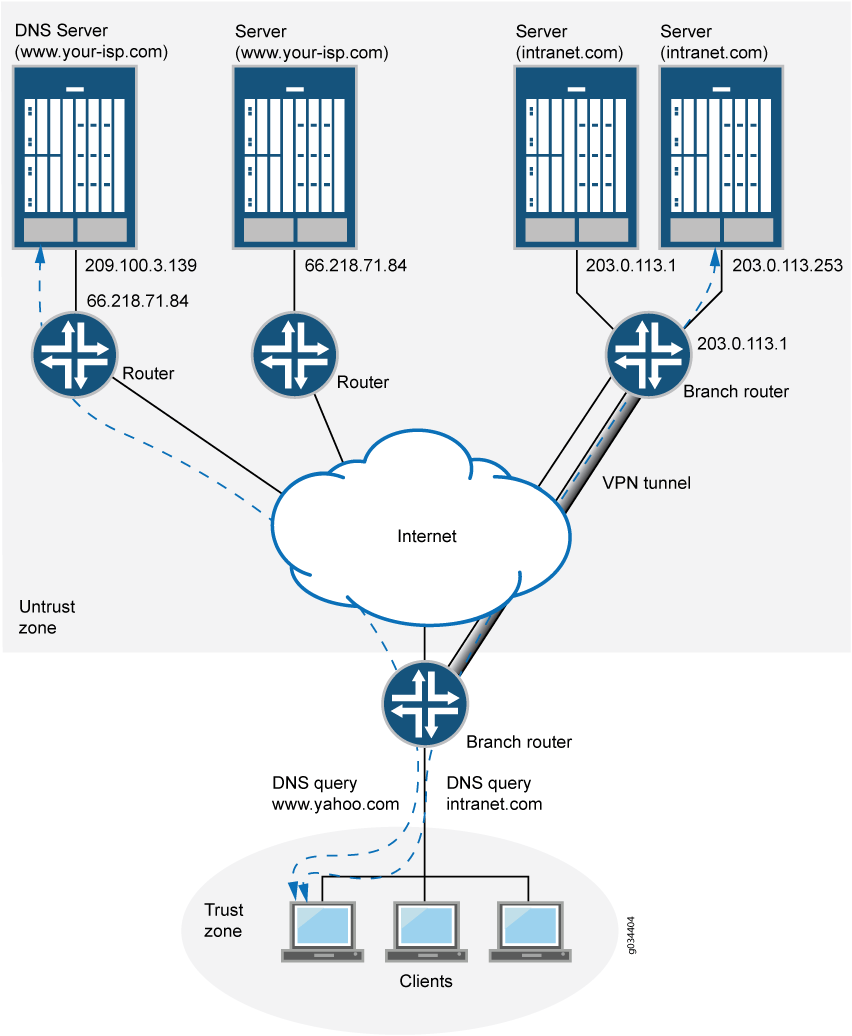
An expired security certificate can be a cause of your website going down. An expired SSL certificate can cause a number of issues, from blocking your website to exposing your system to malicious attacks.
A user's browser checks your SSL certificate validity within milliseconds when they visit your website. The browser will display a warning if the certificate has expired. It may say "This connection isn't private" or "This website isn't secure".
That's important to note because the message tells your visitors that their information is not safe. This warning can also affect your bounce rate because people will click off of your page quickly and move elsewhere.
Cybercriminals could also use expired certificate to steal sensitive info or infect the target network with malicious software. They can get in between the browser and server communication, pretending to be a legitimate customer or website.

An expired certificate can lead to a catastrophic network outage
An SSL certificate that expires stops encrypting communications between a browser and website. This can cause an outage which affects the entire structure of an organisation.
The importance of keeping track is evident in the fact that businesses must keep an eye on their SSL certificates. They can then renew them when they expire.
While there are many tools available that claim to be able to keep track of SSL certificates in enterprise-level companies and renew them when they expire, a good platform for certificate management is essential. These platforms give you visibility over all your SSL Certificates and automate the expiration process.
Your business is at Risk and so are your customers
Even though your business may be safe because you are using SSL, the certificate could still be compromised. Cybercriminals may reissue a certificate with their details, making your business unreachable.
Your users may also be exposed to threats such phishing attacks, man in the middle attacks, or SSL stripping. These attacks could allow attackers read credit card and account information of users, among other things.

Equifax, the breach that exposed millions' of users' private information in 2017, would have been found much sooner had it not been for a expired digital certificate. The company's cybersecurity team was unable to inspect the traffic that passed through its network, so it missed the hack for ten months.
The expiration of certificates can make it hard for enterprises to detect problems and remedy them. Epic Games recently suffered a certificate issue that led to widespread outages on Fortnite Rocket League Houseparty Epic Games Store.
Fortunately, you can manage your security certifications like a professional and avoid such incidents. The right tools can help your company keep up with hundreds or even dozens of SSL certificates currently expiring.
FAQ
How Much Does it Cost to Create an Ecommerce Website?
It depends on the platform you choose and whether you use a freelancer to build your site or hire a service provider. eCommerce sites typically start at around $1,000.
Once you've chosen a platform you can expect to pay $500-$10,000.
If you're planning on using a template, you probably won't pay more than $5,000. This includes any customizations that you might need to suit your brand.
How much does it take to build a website.
It depends on what your website is used for. Google Sites might be free if your website is limited to information about you or your company.
However, if visitors are serious about coming to your site, they will be willing to pay more.
The most popular solution is to use a Content Management System (like WordPress). These programs can be used to build a website quickly and easily without having to know any programming. And because third-party companies host these sites, you won't need to worry about getting hacked.
Another way to build a website is to use a service called Squarespace. You can choose from a range of plans, ranging in price from $5 to $100 per monthly depending on what you need.
What is responsive web design?
Responsive web design (RWD), is a way to create websites that display responsively on all devices, including smartphones, tablets, desktop computers, laptops and tablets. This allows users the ability to view a website simultaneously on different devices and still have access to other features like navigation menus, buttons, and so forth. RWD's goal is to ensure that users view the exact same version of a website on every screen size.
Consider, for instance, that you're building a website for an eCommerce company and your products are sold primarily online. It is important to ensure that your website can be accessed on any device, including a smartphone.
A responsive website will adapt its layout to suit the device it is being viewed on. Your laptop will view the website exactly as a normal desktop site. However, if you're viewing the page on your phone, it will display differently.
This means you can make a website that looks amazing on all types of devices.
Statistics
- At this point, it's important to note that just because a web trend is current, it doesn't mean it's necessarily right for you.48% of people cite design as the most important factor of a website, (websitebuilderexpert.com)
- It enables you to sell your music directly on your website and keep 100% of the profits. (wix.com)
- The average website user will read about 20% of the text on any given page, so it's crucial to entice them with an appropriate vibe. (websitebuilderexpert.com)
- In fact, according to Color Matters, a signature color can boost brand recognition by 80%. There's a lot of psychology behind people's perception of color, so it's important to understand how it's used with your industry. (websitebuilderexpert.com)
- It's estimated that chatbots could reduce this by 30%. Gone are the days when chatbots were mere gimmicks – now, they're becoming ever more essential to customer-facing services. (websitebuilderexpert.com)
External Links
How To
How to use Drupal 7 for Web Design
Drupal is one the most widely used Content Management Systems (CMSs) today. It was developed in 2003 by Dries buytaert of Belgium. Its name is derived from Dirk Buijtewaard's first and last names, Pierre d'Herbemont. In 2005, Drupal became open source, and since then, there are many versions of this CMS. Today, Drupal is used by many websites and companies around the world.
Drupal is extremely popular among website owners due to several reasons. First, it is free to download and install. It's easy to customize and extend. Third, it is very well documented. Fourth, it provides great support through forums and IRC channels. It can be extended via modules. Sixth, it supports multiple language versions. It is easy to customize. It is also scalable. It is also secure. Tenth, it's reliable. It is also supported by the community. Drupal is an excellent choice for your next development project.
You may be wondering what makes Drupal different than other CMS systems. It's simple. Drupal is an open-source content management system. Drupal is free and open-source content management system. Drupal gives you total control over your website. You can add pages and remove them.
Drupal is a great option for anyone who doesn't have any technical skills and wants to create a website. Drupal, unlike other CMS, doesn't require you to know programming to build your website. All you need is to learn how to use the essential functions of Drupal. After that, you'll be able customize your website according to what you need.
Drupal's many pre-built themes, and plugins are another benefit. These plugins will allow you to increase the functionality of your website. To collect contact information, you can use Contact Form module. Google Maps can be used to display maps on your site. Drupal includes thousands of premade templates. These templates give your website a professional look.
Drupal is also flexible. Drupal allows you to add modules or replace existing ones, without worrying about compatibility issues. It's easy to integrate social media on your website. You can also set up RSS feeds, e-mail subscriptions, and more.
Drupal is extremely customizable. Drupal can be customized with custom fields and forms. You can also manage users. Drupal also allows for complex layouts.
Drupal is also reliable and sturdy. It is reliable, stable, and can be scaled. Also, it offers excellent security features. Drupal is a solid web development platform.